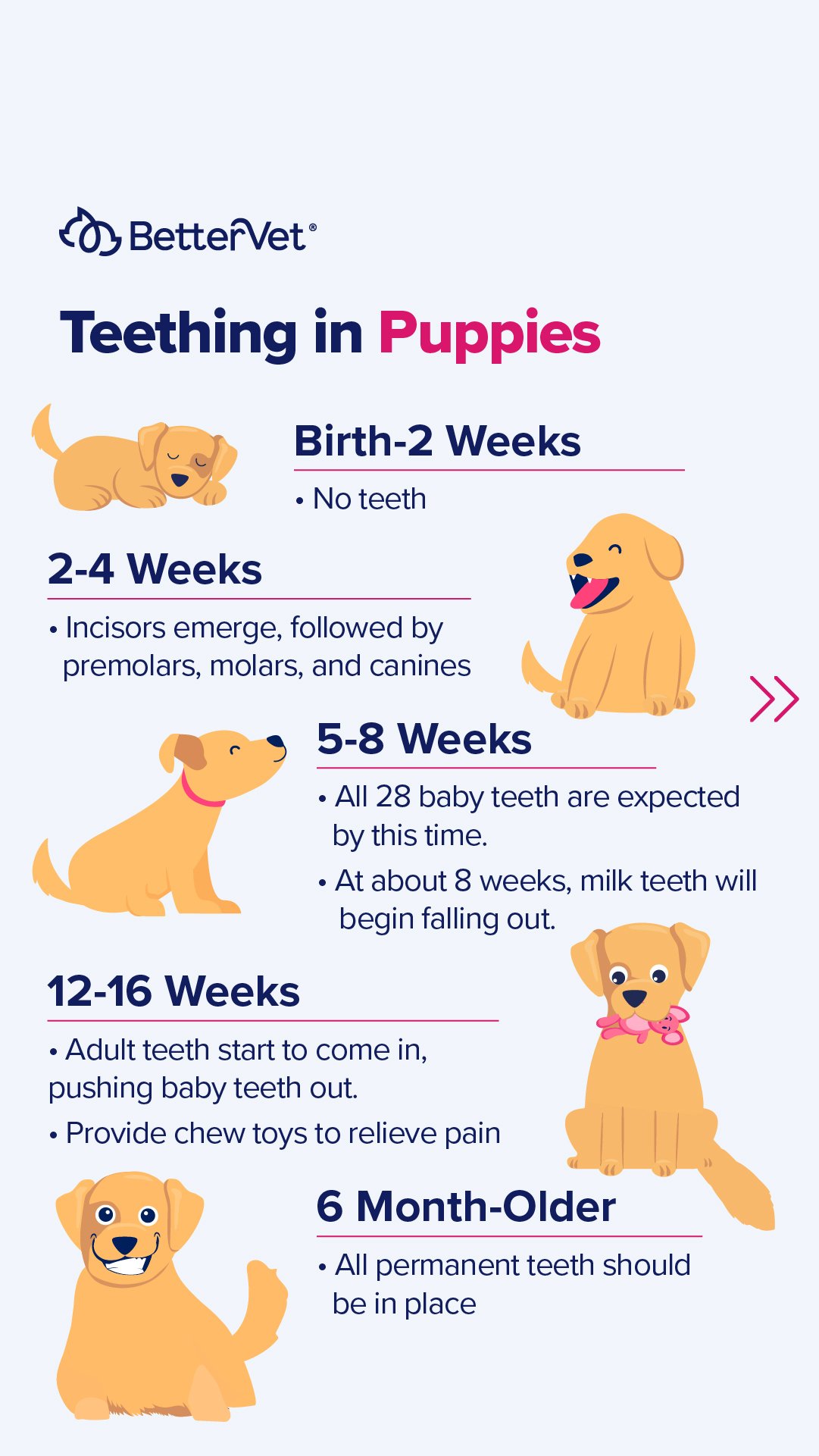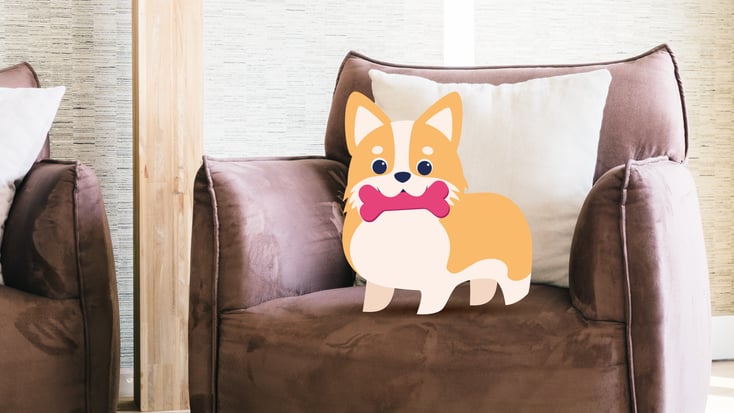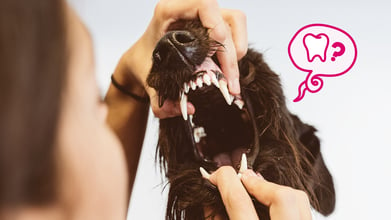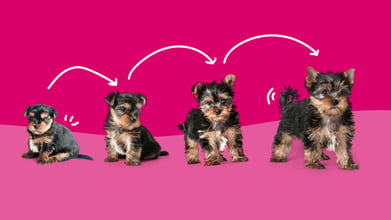As a new puppy parent, you may have questions or concerns about your furry baby’s teeth. Puppies, like human babies, have a timeline for when their baby teeth and adult teeth develop. It’s helpful to know what to expect so that you can make sure your pup’s teeth are growing healthy and strong.
In this blog post, we will discuss everything you need to know about puppy teething, when baby teeth erupt when baby teeth are replaced by adult teeth, as well as pet dental care.
When Do Puppies Get Their First Teeth?
Puppies start teething around three weeks of age when their first set of baby teeth, also known as deciduous teeth or milk teeth, start to erupt. When baby teeth erupt, like human babies, you can expect to see red and inflamed gums as well as increased drooling and chewing. Deciduous teeth are temporary teeth and not as strong as adult teeth.

When Do Puppies Lose Their Baby Teeth?
Puppies typically start losing their baby teeth around 12 to 16 weeks of age, when their permanent teeth start to come in. The order of tooth loss is similar to the order of tooth eruption in puppies, starting from the front to the back. The incisors, which are the small front teeth, are the first to go, followed by the canine teeth, and then the premolars.
When Do Puppies Get Their Adult Teeth?
Puppies' adult teeth start to come in as they lose their baby teeth, around 12 to 16 weeks of age. Adult dogs have 42 teeth, including incisors, canines, premolars, and molars. The incisors and canines come in first followed by the premolars and molars.
Frequently Asked Questions
How long does the teething process last?
The teething process typically lasts for about six months, from when the puppy's first teeth come in, to when all their adult teeth are fully developed. During this time, it's important to provide your puppy with appropriate chew toys to help relieve any discomfort and prevent them from chewing on inappropriate objects.
How can I help my puppy through the teething process?
There are several things you can do to help your puppy to feel more comfortable during the teething process. Providing them with appropriate chew toys, such as Kongs, and rope toys, can help relieve any discomfort and satisfy their urge to chew. You can also freeze some of these toys to provide extra relief. You can also try dog-safe frozen fruit or frozen mini bagels (avoid onion bagels as onions are not good for dogs). Additionally, it's important to supervise your puppy and redirect them if they start chewing on inappropriate objects.
What if my puppy doesn't lose their baby teeth on time?
In some cases, puppies may not lose their baby teeth as their adult teeth come in, resulting in a condition known as retained deciduous teeth. This can lead to dental problems, such as overcrowding, malocclusion, and infection, as well as difficulty eating and biting. If you notice that your puppy seems to have retained deciduous teeth, it's important to consult with your veterinarian for advice.
When should I start brushing my puppy's teeth?
It's never too early to start brushing your puppy's teeth! You can start by using a soft-bristled toothbrush and toothpaste specially designed for dogs. Start slowly and gradually increase the time and frequency of brushing. Brushing your puppy's teeth regularly can help prevent dental problems, such as gum disease and tooth decay, and promote good oral health. Starting early will help your puppy to get accustomed to the routine, which is important to continue after they reach adulthood.
What if my puppy swallows a baby tooth by accident?
You may find a puppy baby tooth on the floor, but it is more common for your pup to swallow a tooth while eating. You may also notice a small amount of blood when a tooth falls out or when they are chewing on a toy. This is usually not a cause for concern, but if your puppy seems to bleed more than usual, be overly uncomfortable, or is not eating, you should have a conversation with your veterinarian. Virtual video consultations are a great option when you have questions about your puppy’s teething.
BetterVet Can Support Your Puppy’s Healthy Smile
Understanding the teething process in puppies can alleviate many concerns for new puppy parents. Puppies start teething around three weeks of age, and their baby teeth typically start to fall out around 12 to 16 weeks of age as their adult teeth come in. Providing appropriate chew toys and supervising your puppy can help relieve any discomfort and prevent them from chewing on inappropriate objects. As always, if you have concerns about your puppy’s teething or development, we’re here to help.









